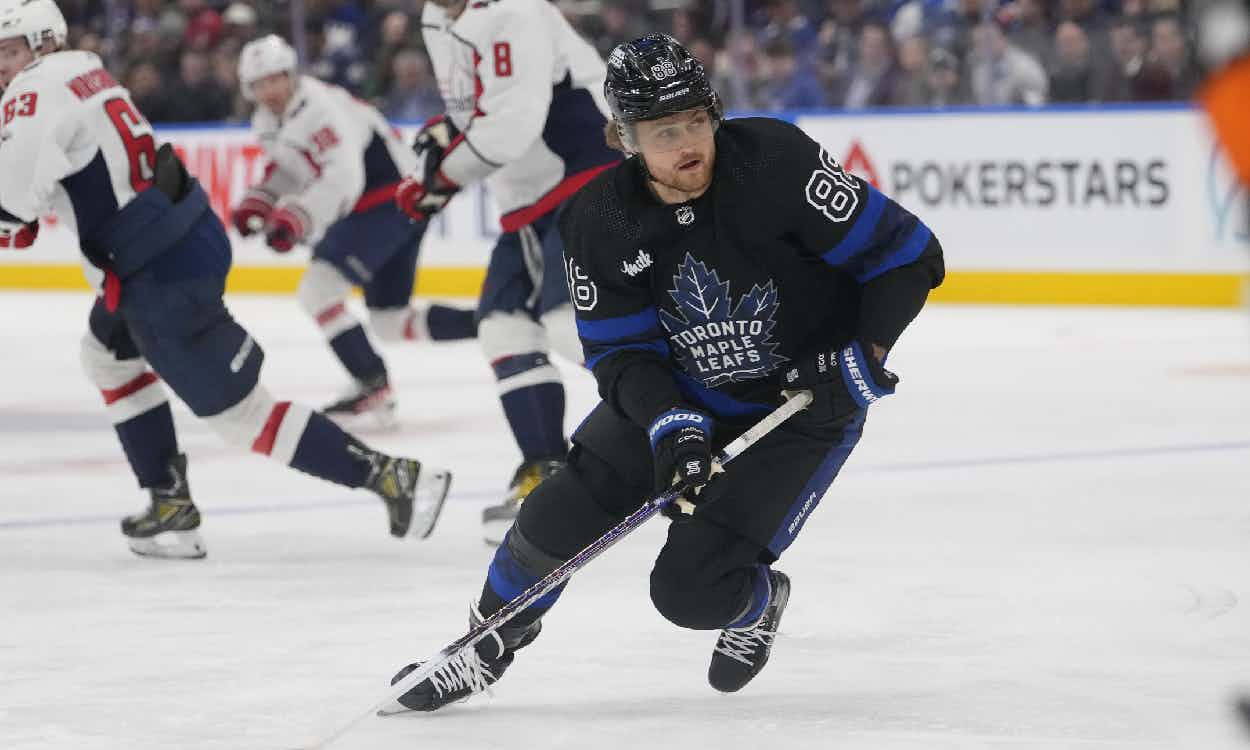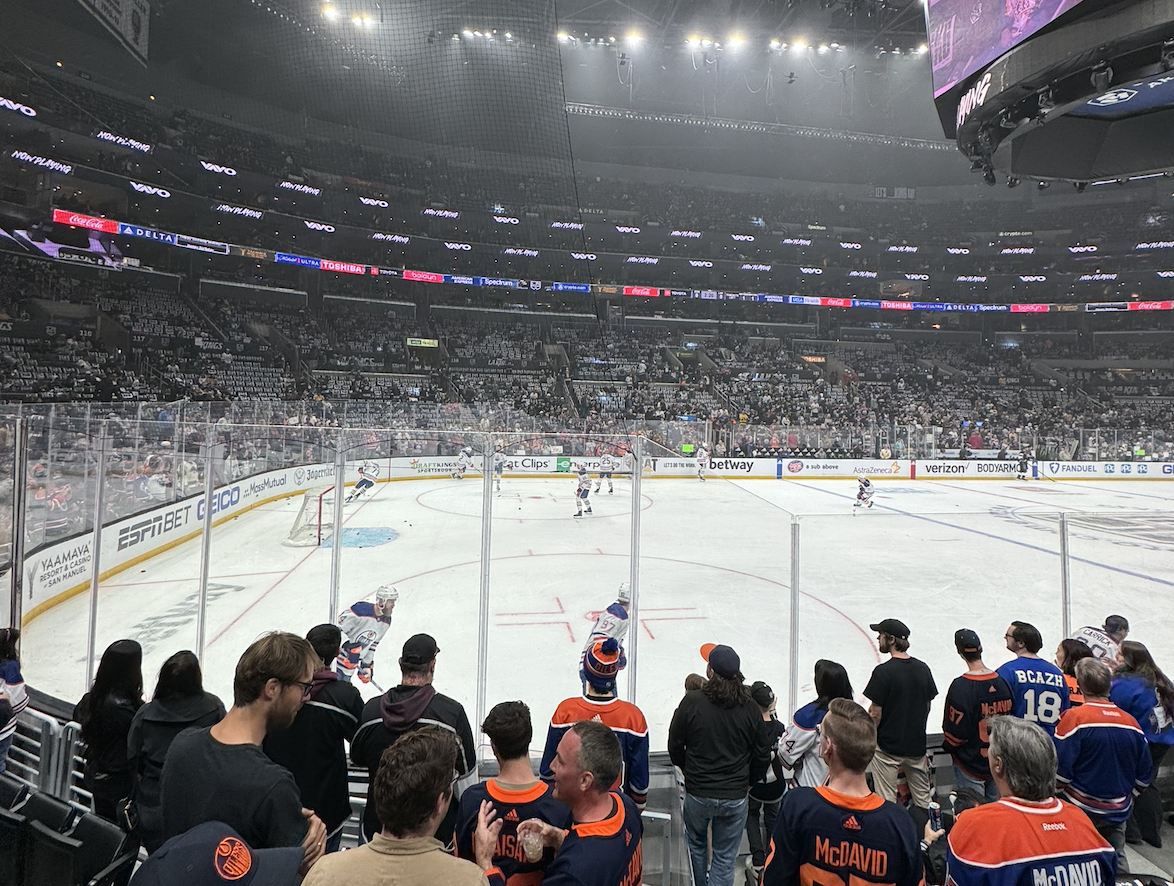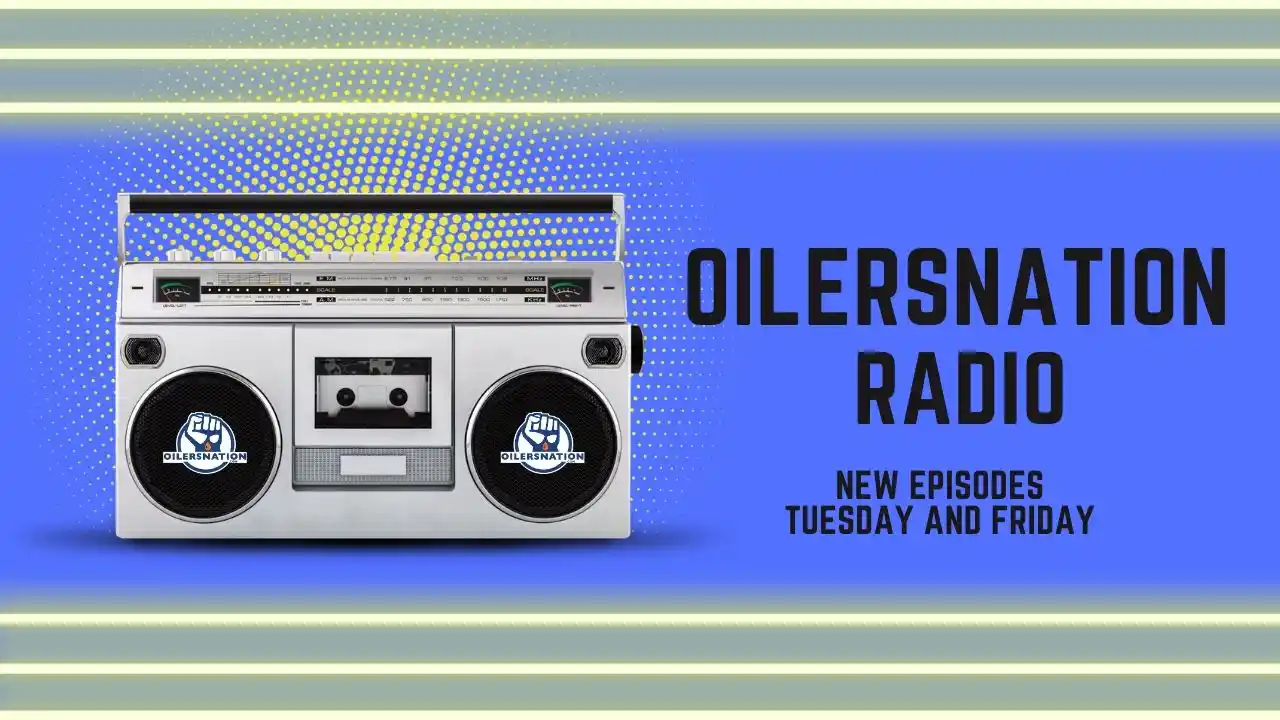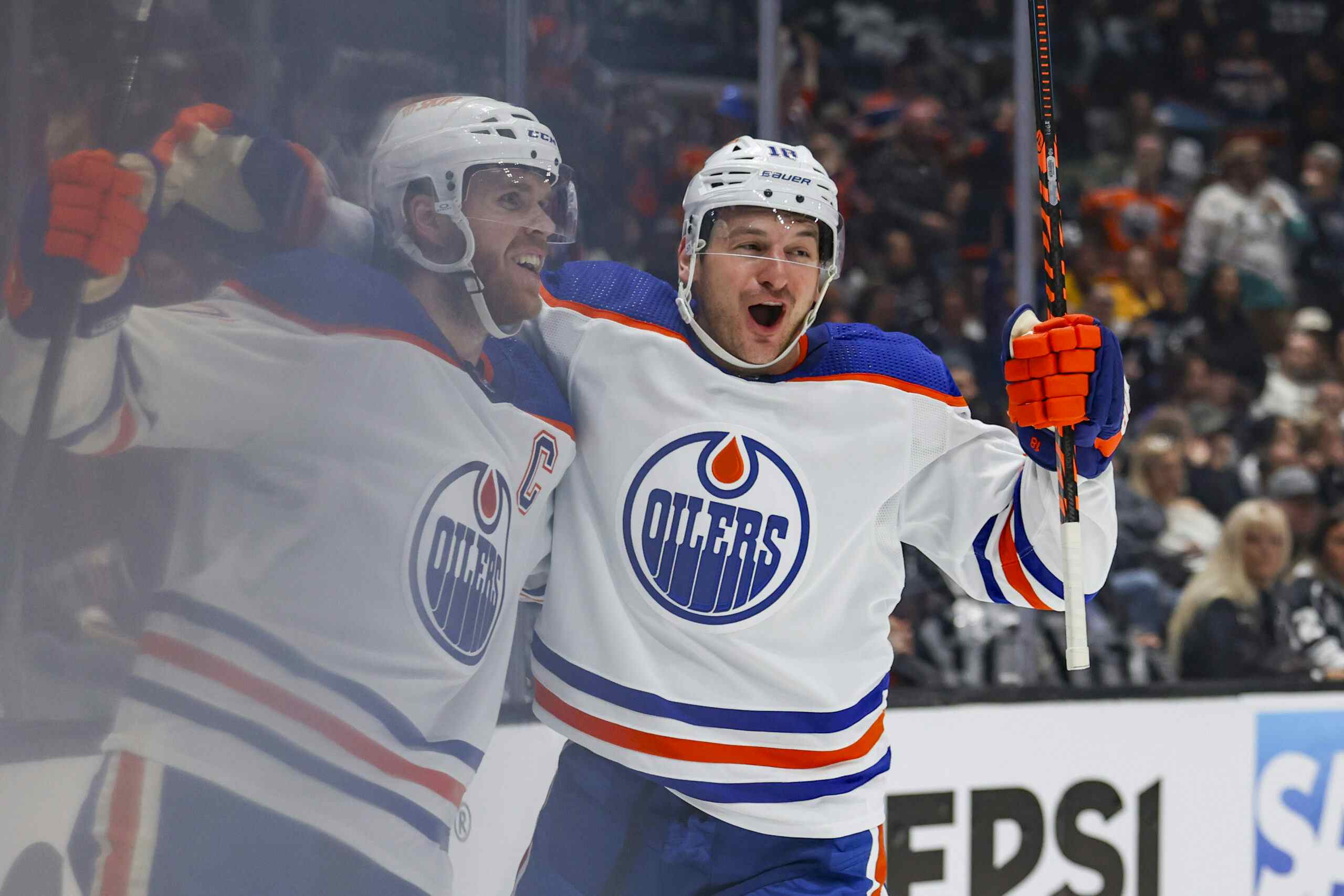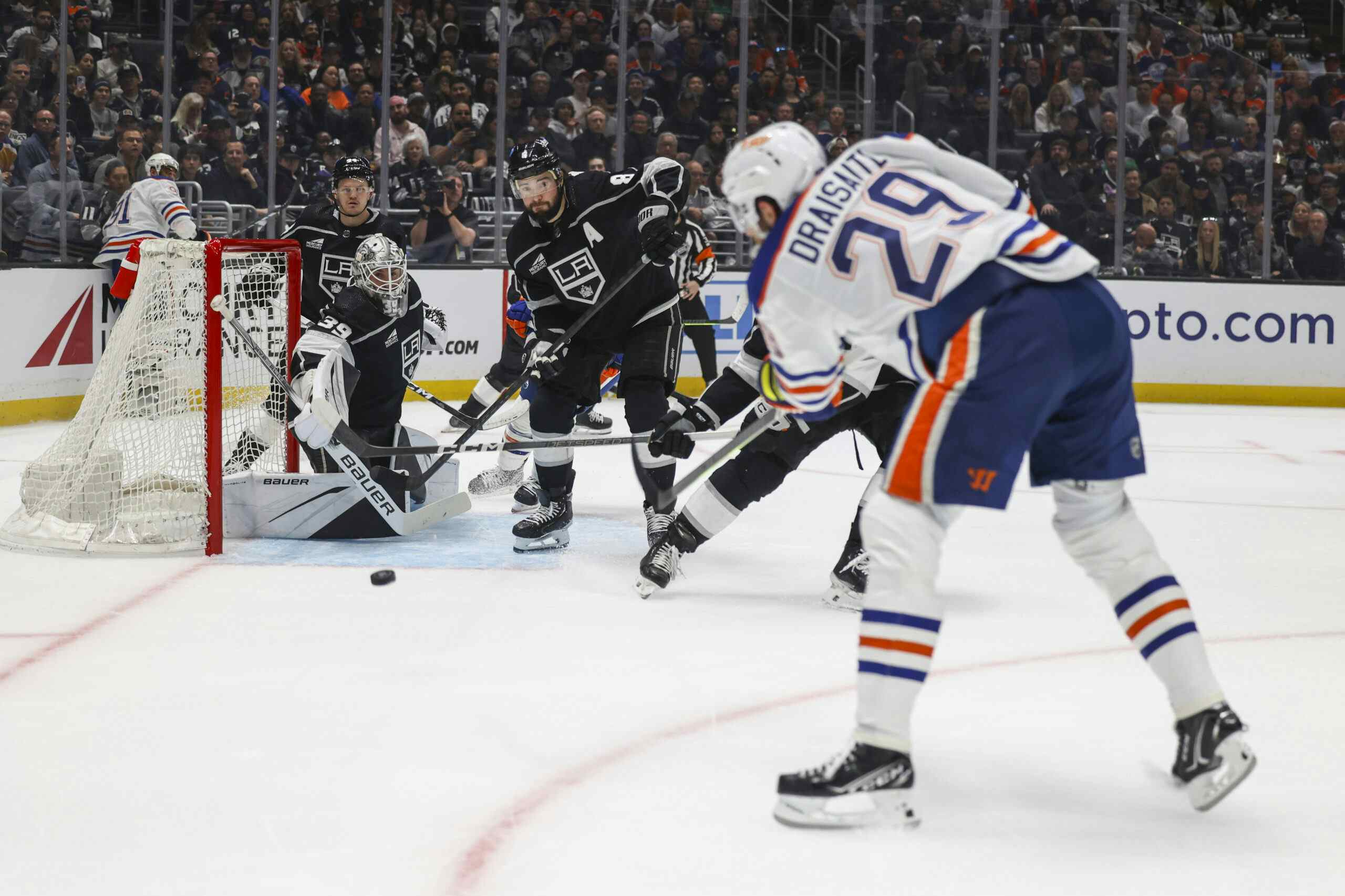The Hybrid Approach

With the Edmonton Oilers clawing their way back into the playoff picture, the management group responsible for the team faces some difficult trade deadline decisions. Should they sell veteran assets, reasoning that they’re still well less than 50/50 to make the post-season? Or should they bring players in, supporting a team that has played well of late to make a playoff push?
As the title suggests, my feeling is that a little bit of both is in order.
The math of the post-season

Always in motion is the future… it wasn’t all that long ago that St. Louis was seen as relatively safe and San Jose was the club on the bubble; now everybody’s gunning for that spot the Blues are currently slated to possess.
The odds are not in the Oilers’ favour; they’re 14-13-7 on the season and will need to go something like 9-5-0 (significantly better than their record to date) to get to 53 points. As Dallas and St. Louis both have more regulation/overtime wins than Edmonton, a tie with either is as bad as being a point behind for the Oilers. A 53-point season probably gets the Oilers in at this point, but if St. Louis goes something like 8-6-1 that gets them to 53 points and then the Oilers need 54 to get in.
Sportsclubstats.com gives the Oilers a little better than one chance in five at a post-season berth, which sounds about right just looking at the chart. They’re certainly in the mix , but the odds are not in their favour.
The kind of player to add
None of this means that the Oilers shouldn’t improve their chances by adding quality to their lineup, just that if they do so they should be realistic about what those additions mean. For a contender, swapping a second round pick for a rental player makes all kinds of sense – they want to win the cup, and there’s only a one in five chance that second round pick turns out to be a decent player. For the Oilers, the odds of that second round pick turning out are basically the same as their odds of making the post-season; it’s a different kind of math.
But while it likely doesn’t make sense for the Oilers to go hard after rental players, there is no reason they can’t add people they think will help the team in the long-term. That might be a pending unrestricted free agent they hope to sign; they can add him now for the playoff run and work on selling him on Edmonton. It might also be a player with years left on his contract –as an entirely speculative ‘for instance’ the Blue Jackets could be interested in shedding the contract of R.J. Umberger, a player who might be a nice fit for the Oilers’ needs.
The Oilers biggest needs, as I see them, are a top-four defenceman with puck skills for the left side and a top-six left wing (ideally one built for puck retrieval). Other roles – backup goaltender, depth on defence, depth at centre – will also likely need filling depending on the Oilers’ summer plans.
The kind of player to subtract

The simple answer: anybody who doesn’t fit into the plans long-term.
Is there a spot for Ryan Jones and Lennart Petrell on this team next season? Does the team suffer if it recalls Teemu Hartikainen to take the place of one of those players? Is there a team willing to take on the next year of Eric Belanger’s contract? The summer plans should inform the deadline plans – if Jones is going to go unsigned, he should be dealt, and if Petrell (or Belanger) has value to anyone he should be dealt.
Are the Oilers going to hang on to their three depth left-side defencemen – Ryan Whitney, Mark Fistric and Theo Peckham – after this season? Does it make much of a difference which of those three guys dresses on the third pairing the rest of the way? My answer to both questions is ‘no’, meaning it seems sensible to me to trade Whitney, hang on to Fistric if he’s going to be re-signed, and trade Peckham if anybody’s willing to take him.
Does Nikolai Khabibulin and his chronically injured lower body have a lock on the Oilers’ backup job next year? If not, does he have value in trade? Move him if he does.
The biggest question for the Oilers is the long-term future of Ladislav Smid. The free agent market on defence is weak this summer, and there simply isn’t a viable candidate to replace Smid, so signing him is a priority. If money is a problem, perhaps Nick Schultz and his $3.5 million cap hit could be made available – Smid’s the better player and likely isn’t going to cost a whole lot more on a four to five-year deal.
Lowetide has a nice piece up along similar lines this morning, too.
Recently around the Nation Network
- Canucks Army: Vancouver embarrassed by Oilers, Hall at Rexall
- Flames Nation: In defence of Jay Feaster, sort of
- Jets Nation: Trade deadline targets – Drew Stafford
- Canucks Army: "Two other NHL teams have called on Luongo over the past week"
- Gregor: An Oilers’ winning streak?
- Lowetide: Running the show
- Willis: Man, Stockton’s going to be the toughest team in the ECHL
- Willis: Extracting maximum value for Ryan Whitney
- Nation Profile: Jason Arnott
- Lowetide: Destination Boston?
- Follow Jonathan Willis on Twitter!
Recent articles from Jonathan Willis

